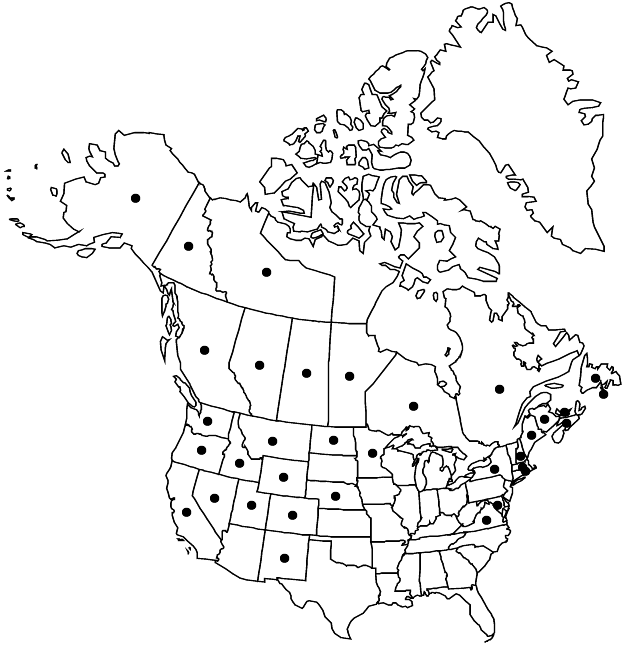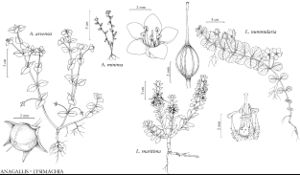Difference between revisions of "Lysimachia maritima"
Atti Soc. Ital. Sci. Nat. Mus. Civico Storia Nat. Milano 146: 229. 2005,.
FNA>Volume Importer |
imported>Volume Importer |
||
| (2 intermediate revisions by 2 users not shown) | |||
| Line 69: | Line 69: | ||
|publication year= | |publication year= | ||
|special status= | |special status= | ||
| − | |source xml=https:// | + | |source xml=https://bitbucket.org/aafc-mbb/fna-data-curation/src/2e0870ddd59836b60bcf96646a41e87ea5a5943a/coarse_grained_fna_xml/V8/V8_626.xml |
|genus=Lysimachia | |genus=Lysimachia | ||
|species=Lysimachia maritima | |species=Lysimachia maritima | ||
Latest revision as of 22:45, 5 November 2020
Stems prostrate, decumbent, or ascending to erect, simple or branched, 0.5–4 dm, somewhat succulent, glaucous, glabrous; rhizomes slender, bulblets absent, leafy to apex. Leaves opposite proximally, becoming alternate and crowded distally; petiole absent; blade narrowly lanceolate, elliptic, or ovate, 0.2–2.6 × 0.1–6(–12) cm, base rounded to slightly cuneate or sometimes truncate, margins entire, plane, apex obtuse to rounded (or acute), surfaces glabrous; venation single-veined. Inflorescences axillary, solitary flowers. Pedicels absent. Flowers: sepals 5, calyx not streaked, 3–5 mm, stipitate-glandular, lobes ovate, somewhat succulent throughout; petals absent; filaments distinct, equaling to slightly longer than calyx; staminodes absent. Capsules 2.5–3.5 mm, not punctate, glabrous. 2n = 30, 60.
Phenology: Flowering spring–summer.
Habitat: Moist, alkaline or saline areas, coastal tideflats, inland meadows, stream banks
Elevation: 0-2300 m
Distribution

St. Pierre and Miquelon, Alta., B.C., Man., N.B., Nfld. and Labr. (Nfld.), N.W.T., N.S., Ont., P.E.I., Que., Sask., Yukon, Alaska, Calif., Colo., Idaho, Maine, Md., Mass., Minn., Mont., Nebr., Nev., N.H., N.Mex., N.Y., N.Dak., Oreg., R.I., Utah, Va., Wash., Wyo., Eurasia.
Discussion
There is a late nineteenth century record of Lysimachia maritima from Monmouth County, New Jersey. No specimens have been found to substantiate reports (http://www.natureserve.org) of the species occurring in Nunavut.
Infraspecific taxa have been proposed based on habit, leaf shape, and capsule size. Because many intermediates exist throughout the range, and extremes can be found growing together, I follow most floras in not recognizing further division.
Selected References
None.
